
The Different Types of Food Weighing Scales
The term food weighing scale is broad and contains many different sub-categories of scale and balance that are suitable for a wide variety of different food related tasks. For this blog post, we thought we’d create a simple and informative buyers guide to make sure you’re fully aware of what instrument is right for you.
Before we go any further, we won't cover things like trade approvals or IP ratings in this blog - to get more information on these subjects see the 'related blogs' section at the bottom of the page.
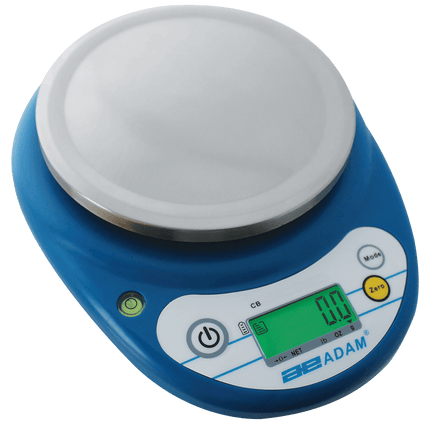
Compact balances
Compact balances are often use for food weighing tasks in homes, smaller professional kitchens and cafes due to their small footprints and ability to be transported and stored with ease. These balances are usually very simple in their usability and feature only the essential weighing functions that allow for users to perform quick and simple weighing tasks, making for an extremely affordable weighing instrument. Compact balances will not have the higher capacities available on most other scales, so make sure you have a rough idea of the weight of your subject before you buy.
Why buy this: Compact balances are useful for smaller scale food preparation environments, such as small restaurants, cafes and market stalls.
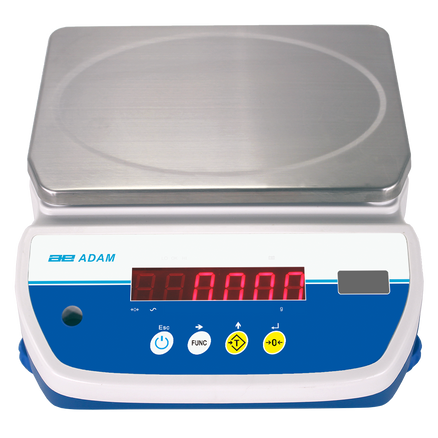
Bench scales
Similar to compact scales, bench scales are used at home, as well as in professional food preparation environments, such as restaurants and cafes. They are highly versatile weighing instruments that make very good food scales due to their small size and range of weighing functions and features that help to make food weighing easier. These features include percentage weighing – great for mixing ingredients, checkweighing – great for portion monitoring, and parts counting – great for counting batches of food items.
Why buy this: Bench scales are useful for general food weighing tasks in restaurants, catering environments and food manufacturing industries.
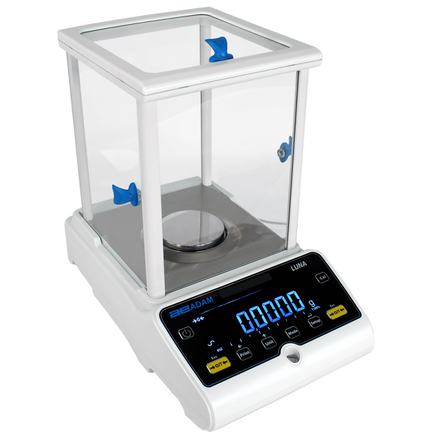
Analytical balances
For food research applications, an analytical balance is often used. These advanced, high precision lab balances are full of cutting edge features that can make analysis and testing possible, allowing for users to weigh out tiny food samples or chemicals to test before mass production. These features can include checkweighing, parts counting, statistical analysis, percentage weighing and more. Analytical balances will generally have lower maximum capacities than most other scales, but can weigh subjects with a readability of between 0.1 and 0.01mg.
Why buy this: Users looking for a high precision laboratory scale for food research should buy an analytical balance.
Moisture analysers
Another weighing instrument used in food research environments, moisture analysers can provide valuable information on the content, quality and safety of food items. Variables such as shelf life can be estimated by measuring the moisture of a subject, and the acidity and water levels can be measured to better understand the presence of bacteria, pathogens and contaminants in products such as biscuits or bread.
Moisture analysers differ slightly to most weighing scales and balances but to better understand how they can be used, see our blog post: How moisture analysers can help determine the purity of coconut oil.
Why buy this: Moisture analysers would be found in food research facilities and product testing environments.
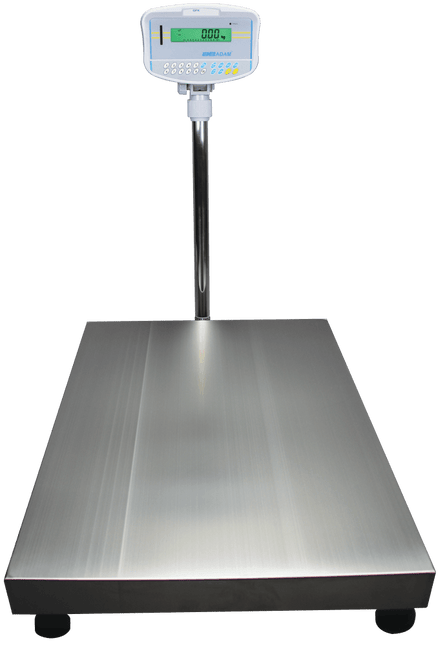
Floor and platform scales
For weighing out and distributing food items, high capacity floor and platform scales can be used. These instruments can be used to weigh heavy boxes or crates of food in dispatch departments, or to weigh out large batches of foods for catering services. Both floor and platform scales have higher maximum capacities than a regular bench scale for example, and feature large, flat weighing pans where heavy items can be placed on and weighed with minimal effort.
Why buy this: Users looking for a high capacity weighing scale for dispatch areas or large scale catering environments.
For any help in selecting a food weighing scale or balance for your application, please contact a member of our team.
For more information on food scales and how they can benefit your industry, read the companion piece to this blog post: 6 Reasons to Buy Professional Food Scales.

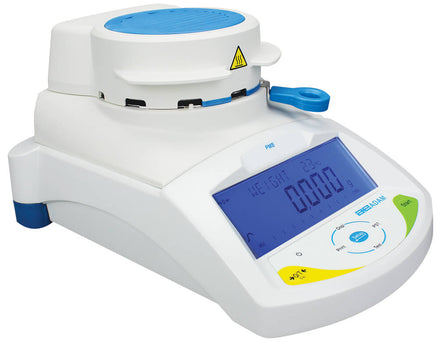
Leave a comment